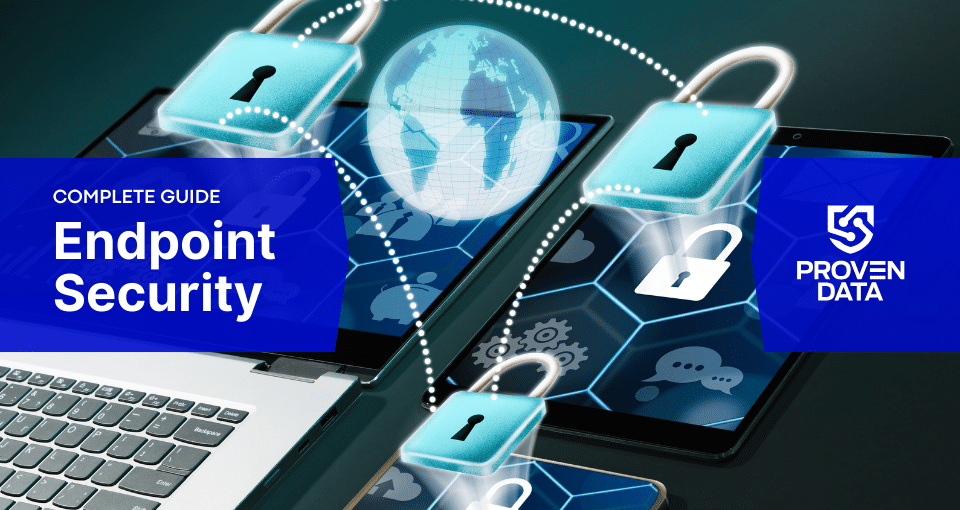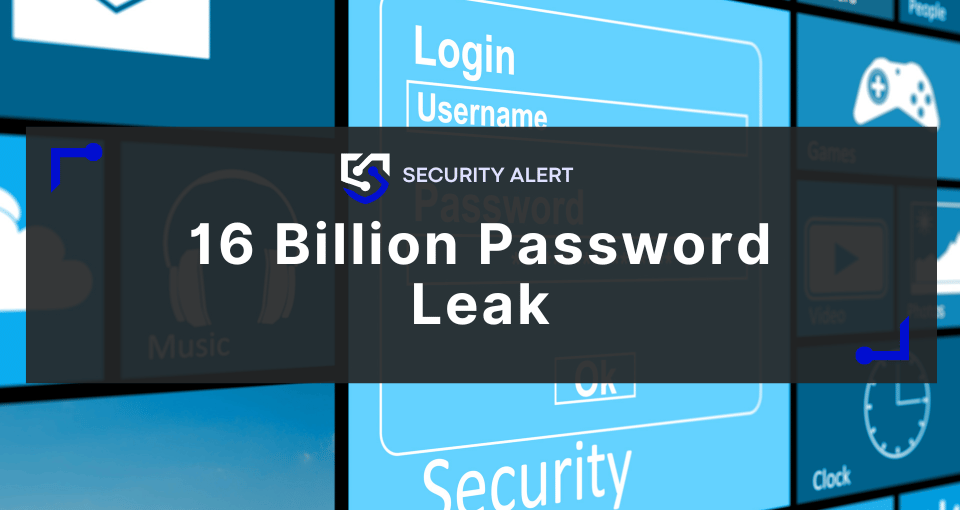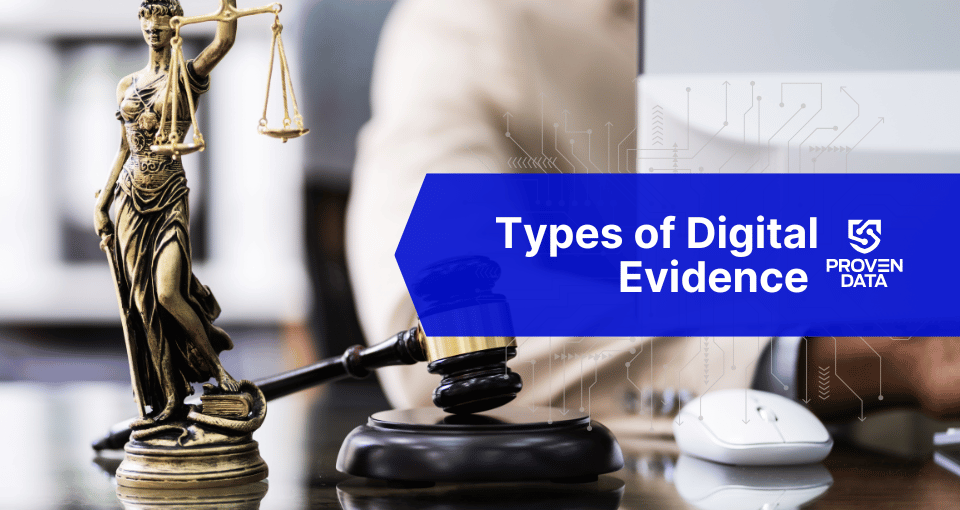Endpoint security is part of cybersecurity solutions to prevent cyber attacks and threat actors from accessing your data. It is the practice of securing endpoints or entry points (vulnerabilities) of end-user devices such as desktops, laptops, and mobile devices from being compromised by malicious actors.
Endpoint devices are:
- Tablets
- Mobile devices
- Smartwatches and wearables
- Printers and scanners
- Servers
- ATMs
- Medical devices
- Laptops
- Desktop computers
- Internet of Things (IoT) devices
It involves a layered approach that utilizes multiple technologies to balance performance, detection, and protection. This includes software and system patching to eliminate probable vulnerabilities, using antivirus software, and implementing access control policies. Endpoint security helps protect businesses from cyber threats by providing an additional layer of defense against potential attacks.
This article explores what endpoint security is, why it is important, how it works, and how to use it in your business to ensure data security and compliance with data regulations.
Why is endpoint security important for your business?
Endpoint security is essential to ensure the safety and protection of end-user devices such as desktops, laptops, and mobile devices. It helps protect businesses from cyber threats by providing an extra layer of defense against malicious attacks, especially for those with employees working remotely. It also helps monitor and control corporate network access, ensuring only authorized users can access it. In addition, implementing endpoint security helps organizations comply with industry regulations and standards such as GDPR or HIPAA.
Cybersecurity solutions are essential for businesses in today’s digital world as they help to protect data and systems from malicious actors who may try to gain unauthorized access.
How endpoint security works
To establish strong network security, endpoint solutions use a variety of technologies to detect and prevent potential threats, including antivirus software, firewalls, malware protection, and more. When a threat is detected, the security solution isolates the user’s device from the network and blocks access to certain websites or applications.
This could include blocking access to certain websites, preventing certain applications from running or isolating the user’s device from the network. Its solutions also include monitoring user activity to detect suspicious behavior or unauthorized access attempts.
The endpoint security solution must accomplish a few requirements, such as:
- Be able to protect endpoint and email against data exfiltration
- Create disk encryption
- Machine learning to detect zero-day threats
- Have integrated firewall
- Scan emails to prevent phishing attacks
- Block data transfer outside the network
- Advanced antivirus and anti-malware protection
- Create safe web browsing
Endpoint security components
Endpoint security safeguards endpoint devices from malicious activities and cyber threats by applying several technologies and solutions. These solutions provide essential capabilities for investigation and remediation, ensuring that organizations can quickly address potential threats. As the number of devices connecting to corporate networks increases, particularly with the rise of remote work and BYOD (Bring Your Own Device) policies, robust endpoint security has become imperative.
By integrating these components into a comprehensive endpoint security strategy, organizations can significantly enhance their defenses against a wide range of cyber threats while maintaining operational efficiency.
Next-generation antivirus (NGAV)
Unlike traditional antivirus solutions that rely on signature-based detection, NGAV employs advanced techniques, such as machine learning and artificial intelligence, to identify new and unknown malware by analyzing various indicators like file hashes and URLs. This proactive approach helps close the gap between malware emergence and detection.
Endpoint detection and response (EDR)
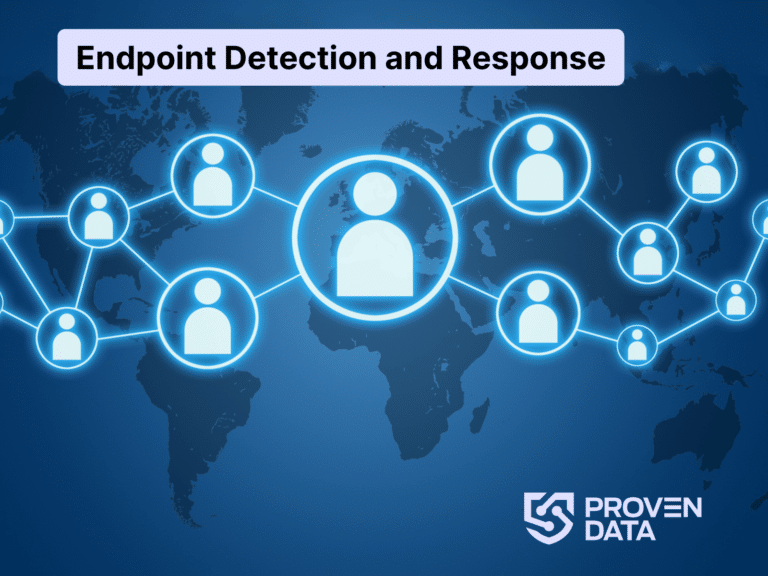
EDR solutions enhance threat detection by continuously monitoring endpoints. They offer real-time visibility into endpoint activities, enabling organizations to identify and respond to sophisticated threats that may bypass initial defenses. EDR includes features like alert triage, incident investigation, and threat hunting.
Threat intelligence integration
Effective endpoint security relies on up-to-date threat intelligence to understand evolving cyber threats. This integration allows organizations to automate incident investigations and develop custom indicators of compromise (IOCs), enhancing their ability to defend against attacks preemptively.
Data loss prevention (DLP)
DLP technologies help protect sensitive data from unauthorized access or exfiltration. By monitoring data transfers and enforcing encryption policies, DLP ensures that critical information remains secure even when accessed through endpoints.
Firewall protection
Integrated firewalls serve as a first line of defense against unauthorized network access. They filter incoming and outgoing traffic based on established security rules, blocking potentially harmful connections while allowing legitimate traffic.
Encryption
Endpoint security solutions often include encryption capabilities to protect data at rest and in transit. Full disk encryption (FDE) ensures sensitive information is inaccessible without proper authorization.
Secure remote access
With the increase in remote work, secure remote access solutions such as VPNs are essential for ensuring employees can safely connect to corporate networks without exposing sensitive data.
User activity monitoring
Continuous monitoring of user activity helps detect suspicious behavior or unauthorized access attempts on endpoints. This capability enables organizations to respond swiftly to potential security incidents.
What are the three main types of endpoint security?
The three main types of endpoint security—on-premises, cloud-based, and hybrid—each offer unique advantages tailored to specific organizational needs and infrastructure capabilities. By selecting the right type of endpoint security, businesses can effectively protect their sensitive data and maintain operational integrity amidst a growing threat landscape.
On-premises endpoint security
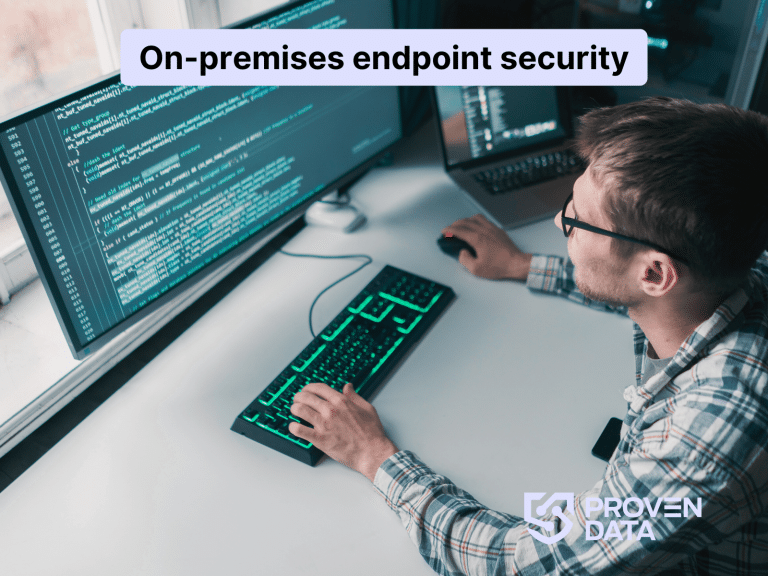
On-premise is a traditional model that deploys security solutions within a local data center or physical infrastructure. Administrators manage and monitor endpoints directly from this centralized location.
While this approach allows tight control over security measures, it limits visibility and management capabilities to devices within the organization’s physical perimeter. The on-premises endpoint security model can create silos, making it challenging to manage remote or mobile endpoints effectively.
Cloud-based endpoint security
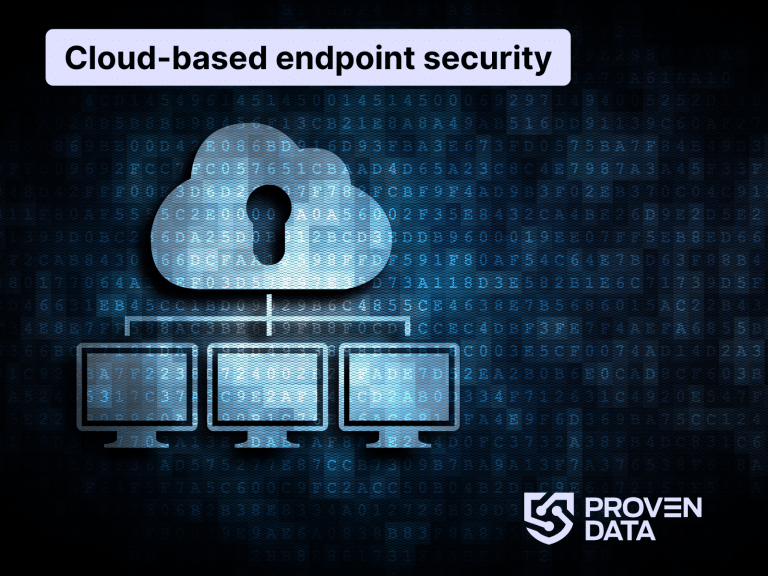
On the cloud-based, the security solutions are hosted in the cloud. A centralized management console in the cloud enables administrators to monitor and manage endpoint security across various locations without being restricted by physical boundaries. This approach enhances scalability and flexibility, making it easier to adapt to changes in workforce dynamics, such as remote work or BYOD policies.
Remember to choose carefully and monitor the cloud service you decide to host your solution, as third-party cloud solutions are not flawless (check the Ticket Master case).
Hybrid endpoint security
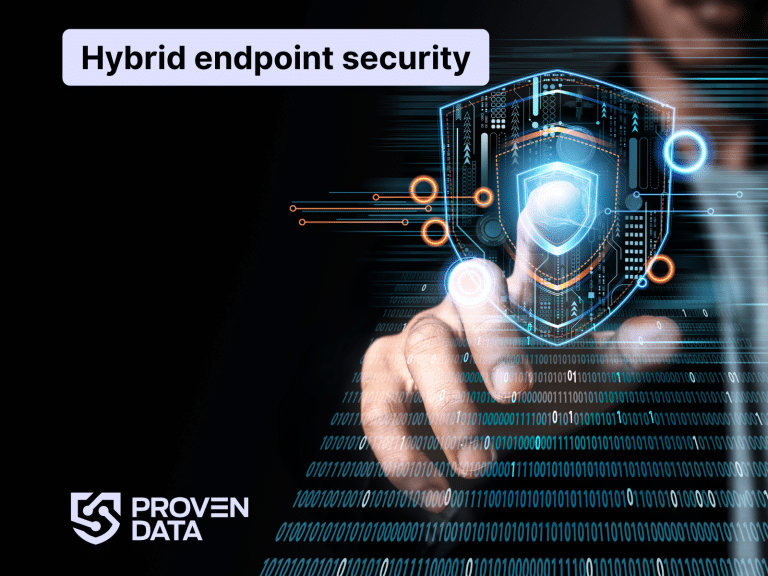
The hybrid approach combines both on-premises and cloud-based solutions, leveraging the strengths of each model. Organizations can maintain critical security functions locally while utilizing cloud capabilities to monitor and manage endpoints outside their immediate network. This model particularly benefits businesses transitioning from legacy systems to more modern, flexible architectures that accommodate remote work environments.
How to build endpoint security
Creating an endpoint security solution for your business begins by identifying potential risks and threats it’s more likely to face. For example, if accidental deletion is more likely than a ransomware attack, you should focus on preventing that, although not ignoring less probable threats. After that, ensure you add these requirements to build an effective endpoint security solution centering on your main risk for data loss.
- Implement access controls. Set up user access controls to restrict what devices and users can connect to your network. This helps prevent unauthorized access to sensitive data and systems.
- Use antivirus software. Install antivirus software on all the endpoint devices connected to the company’s network to protect against known malware and viruses. Regularly update the software to stay ahead of the latest threats.
- Establish firewall rules. Configure a firewall on your network that restricts access based on rules you establish (e.g., blocking certain websites or ports). This helps ensure that only trusted sources are connecting to your network.
- Monitor endpoint activity. Use monitoring software to pay close attention to how devices are being used on your network, allowing you to detect suspicious activity and respond accordingly quickly. You can also add software to block outside access to your data.
- Regularly update software. Keep all software and hardware up-to-date with the latest patches and upgrades to maintain proper protection from new threats as they arise.
- Implement network segmentation. Segment the network into distinct zones based on function or sensitivity to prevent lateral movement within your network. This limits an attacker’s ability to move freely across the network if they gain access to one segment, thereby containing potential breaches and reducing overall risk.
- Adopt a Zero Trust model: Embrace a Zero Trust approach, which operates under the principle that no user or device should be trusted by default, whether inside or outside the network perimeter. Implement strict identity verification processes for every user and device attempting to access resources, ensuring only authorized entities can interact with sensitive data.
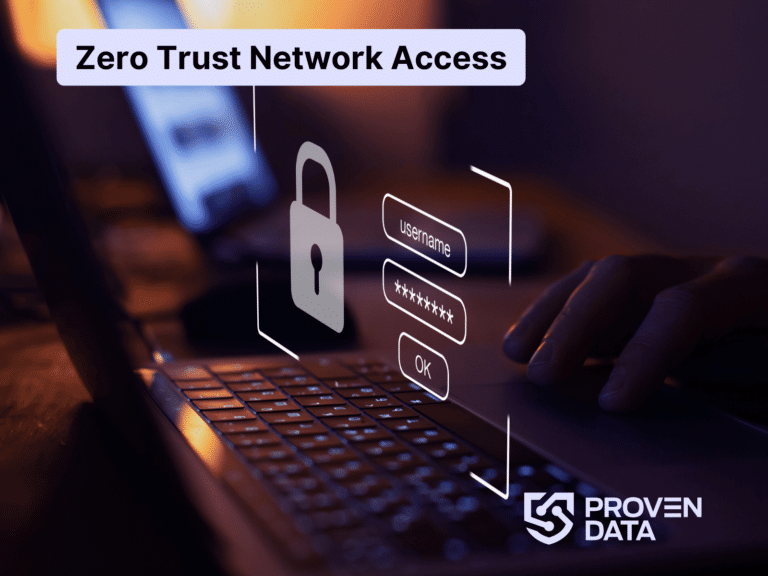
What are the benefits of endpoint security
Endpoint security provides businesses with many benefits. These include:
- Improved threat detection and prevention. This security solution is designed to detect and prevent sophisticated cyber threats. Including malware and emerging zero-day threats, which can be difficult to identify using traditional antivirus software.
- Safeguards valuable data. It helps to protect valuable company data from being stolen or lost, reducing the risk of data breaches and costly fines or reputational damage.
- Raises user awareness. Endpoint security solutions help raise awareness among end users about potential threats and how to protect against them, helping to reduce the risk of successful attacks.
- Reduced response time. By providing visibility into alerts in an easy-to-read interface, endpoint security allows IT teams to quickly identify and respond to potential threats before they cause significant damage.
- Supports regulatory compliance. Endpoint security solutions can help businesses meet regulatory requirements for protecting sensitive data, such as customer information or financial records.
What is the difference between endpoint security, antivirus, and cybersecurity?
Endpoint Security is a comprehensive cybersecurity strategy designed to protect endpoints—such as desktops, laptops, mobile devices, and servers—from a wide range of threats. It encompasses various technologies and practices, including but not limited to antivirus software, firewalls, intrusion detection systems, and data loss prevention. Endpoint security solutions provide centralized management capabilities that allow organizations to monitor, detect, and respond to security incidents across all endpoints within their network. They are equipped to handle sophisticated threats like ransomware, zero-day attacks, and advanced persistent threats (APTs) through features such as Endpoint Detection and Response (EDR) and managed threat hunting.
In contrast, Antivirus Software is typically a component of endpoint security that focuses primarily on detecting and removing known malware. Traditional antivirus solutions scan files and processes for signatures of known viruses and other malicious software. While they are essential for basic protection against common threats, they often lack the advanced capabilities needed to address newer or more complex attacks.
Cybersecurity, on the other hand, is an overarching term that includes a variety of technologies and processes used to protect networks, systems, and data from malicious actors or cyber threats. Endpoint security, on the other hand, is a specific type of cybersecurity solution designed to protect an organization’s endpoints or devices from malicious activities or cyber threats.
How to ensure compliance with data protection regulations when using endpoint security software
When using endpoint security software, businesses can take steps to ensure compliance with data protection regulations – such as HIPAA and GDPR.
- Educate employees. Regular training on the importance of following data protection policies and taking proper precautions when using endpoint devices helps create a cyber awareness culture.
- Monitor data usage. Businesses should closely monitor how employees use their endpoints, including what programs they are running, which websites they visit, and any downloads.
- Implement security protocols. Businesses should implement security protocols to protect company data from potential threats. Antivirus software, firewalls, user access control, and Intrusion Detection Systems (IDS) can do this.
- Regularly update software. Endpoint security software must be regularly updated to stay ahead of the latest cyber threats.
